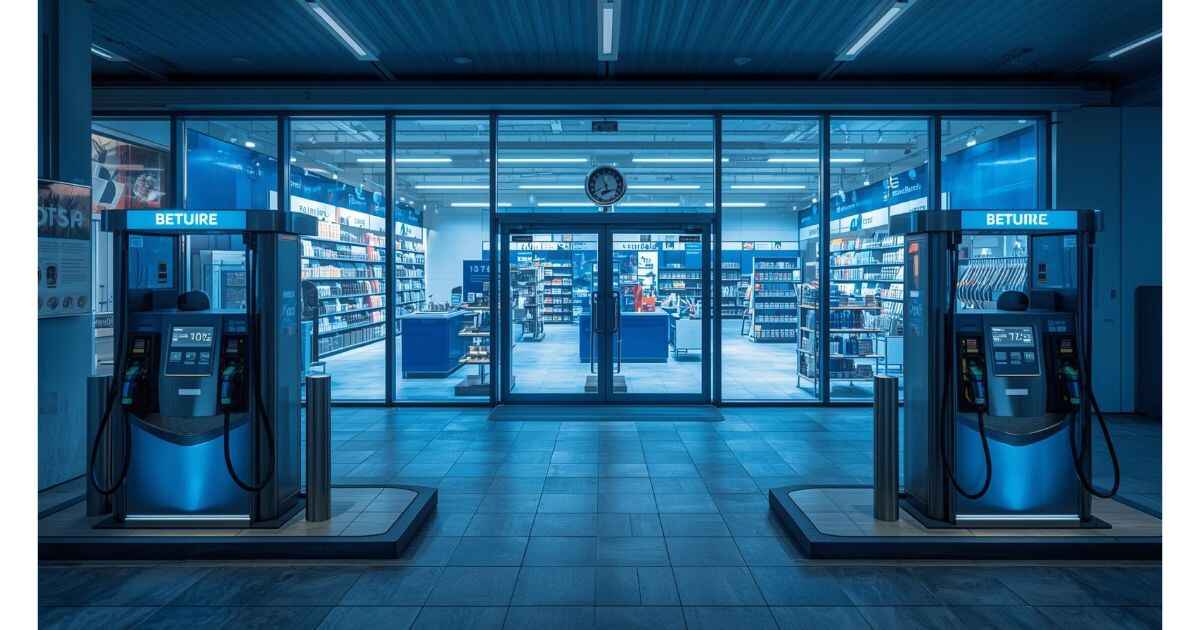What Does “Retailers Entering Fuel Business” Really Mean?
Retailers entering fuel business refer to a strategic shift in which retail brands expand into fuel services, including fuel stations, EV charging points, or energy infrastructure. It’s not just about fuel; it’s about integrating energy services into retail operations to increase foot traffic, customer convenience, and brand loyalty.
This move allows retailers to serve as multi-purpose destinations where consumers shop and refuel in one stop.
Why Are Retailers Entering Fuel Business Right Now?
Retailers are entering the fuel business to diversify revenue streams, capture daily consumer demand, and create more valuable real estate usage. Fueling services bring regular footfall, which boosts in-store sales and customer retention.
As fuel demand evolves, especially with the rise of EVs, retailers see an opportunity to become part of the mobility ecosystem and enhance their long-term relevance to consumer lifestyles.
Market Opportunities for Retailers Entering Fuel Business
The market offers significant growth opportunities for retailers entering fuel business.
First, many retailers already own strategic, high-traffic locations ideal for fuel or EV station integration. Second, the rapid growth of EV adoption creates a future-facing opportunity for retailers to offer charging services alongside traditional retail.
Retailers can leverage customer data to build fuel loyalty programs, push targeted promotions, and optimize pricing strategies. Cross-selling and upselling opportunities increase with every customer visit, turning fuel into a key revenue channel.
Challenges Faced by Retailers Entering Fuel Business
Despite its potential, entering the fuel business presents real challenges.
Retailers must navigate complex regulatory requirements, including environmental and safety standards. Fuel infrastructure demands significant capital investment, which can delay ROI. In mature markets, competition from established fuel companies pressures pricing and margins.
Moreover, retailers must balance investment in fossil fuel services with the fast-growing need for EV charging infrastructure, creating a complex operational mix.
How AI Is Empowering Retailers Entering Fuel Business
AI technology is reshaping how retailers approach the fuel business.
With predictive analytics, retailers can accurately forecast fuel demand and manage inventory across locations. Dynamic pricing algorithms help adjust fuel prices in real-time based on competition, demand, and market trends. Customer segmentation powered by machine learning enables more personalized marketing, while AI-driven logistics streamline fuel supply chains.
Retailers using AI are building more innovative, more responsive, and more profitable energy-retail ecosystems.
What’s Coming Next for Retailers in the Fuel Business?
Sustainability, digital tools, and evolving customer expectations drive the next growth phase for retailers entering fuel business.
Key developments include expanding EV charging infrastructure at retail sites, integrating contactless payments and loyalty apps, and forming more partnerships with green energy providers. AI will continue to enhance operational efficiency and customer experience across the fuel-retail interface.
Retailers who invest in future-ready systems now will lead the transformation of energy retail into a hybrid convenience model.
Final Takeaway
Retailers entering fuel business are responding to a shift in how people move, shop, and power their lives. With a blend of energy infrastructure, digital tools, and customer-centric strategy, retailers can turn fuel services into scalable growth engines.
This trend is not just an extension of retail; it’s a redefinition of how retail and energy intersect in the modern economy.
Frequently Asked Questions (FAQs)
1. Why are retailers entering fuel business?
Retailers are entering the fuel business to create new revenue streams, increase customer convenience, and use their existing real estate more effectively. This move helps them attract more daily traffic, cross-sell products, and stay competitive in a changing market.
2. What are the main opportunities in the fuel business for retailers?
Opportunities include EV charging integration, location optimization, loyalty program expansion, and the ability to personalize customer offers using retail and fuel data. Fuel services also enhance the convenience retail experience.
3. What challenges do retailers face when entering the fuel business?
Key challenges include regulatory compliance, high setup costs, market competition, and balancing fossil fuel and EV infrastructure. Retailers must also manage supply chains and pricing strategies effectively.
4. How does AI help retailers entering fuel business?
AI supports fuel retail operations through demand forecasting, real-time pricing, customer behavior analysis, and supply chain optimization. It improves efficiency and enables more informed decision-making.
5. Is the fuel business still profitable for retailers with EV growth?
Yes. While EV adoption is rising, there is still strong demand for traditional fuels. At the same time, EV infrastructure presents a new growth area. Retailers that adopt a blended strategy can remain profitable and future-ready.
